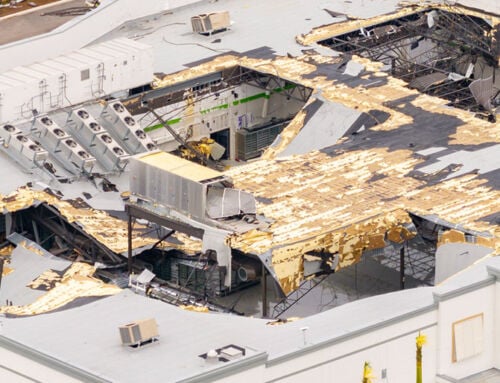Whether you own an electrical contracting business, are thinking of starting one, or work as an independent electrician, there are a number of unique risks facing your industry that you may come across on a daily basis and should be aware of. Once you’re educated on the risks, you can actively work to mitigate them.
By implementing a variety of tools and techniques, including proper safety training, risk management procedures, and loss prevention programs, you can help safeguard your business from everyday risks. But you also need the right insurance to help protect your business’ reputation and bottom line. But what exactly are common electrical contractor risks that you need to prepare for? And what coverages can help protect you against these risks? We outline three key risks, and the appropriate insurance to help with them, below.
Three common electrical contractor risks
Liability
As a professional electrician, you have a lot of responsibility on the job, where a mistake could cause serious harm or damage to yourself, coworkers, your customers, and their property.
One of the most costly and damaging events is an electrical fire. These fires can spread quickly throughout the property, causing significant damage and serious injuries. While you should always follow proper safety guidelines, the electrical systems that are exposed while you work can present a hazard for others. Other workers on the job site could be harmed by electric shock if they’re near the equipment.
Whether you’re working on a big project or hired to do smaller repairs, if something goes wrong you could potentially face an expensive lawsuit. Commercial General Liability insurance can help to protect you and your business from the financial consequences of a lawsuit. You can also get Completed Operations coverage so you’re protected if anything happens after the job is completed.
Theft
To get the job done, you rely on specialized tools and equipment that can be expensive to purchase, maintain, and repair. Unfortunately, construction site theft is on the rise; news stories about theft on construction job sites pop up regularly. Thieves know that electricians’ tools are expensive and can quickly be re-sold on the black market. Other equipment like appliances, supplies, and copper wiring are also popular targets for thieves.
Job site managers need to take certain measures to help protect the valuable equipment on site. But even if you take every precaution to ensure that your tools are clearly marked and properly secured, some things are out of your control.
That’s why it’s important to have specific coverage for your tools and equipment in your business insurance policy – so they’re protected from theft and breakdown. This type of coverage can also reimburse you for the cost of renting tools in the meantime.
Property damage
When you’re not at a customer job site or on the road, you keep your equipment safely locked away at the shop. Whether you have a business location, or your shop is simply the garage of your home, you need to make sure your property is insured. A fire, flood, or backed-up sewer could damage your shop and all its contents.
Commercial Property insurance is a must-have: it protects your shop, its contents, and supplies if they get damaged. You can also include Business Interruption coverage to help pay for any income that’s lost due to a claim, and help cover expenses if your business is unable to run normally due to an insured loss.
Your bottom line
Having insurance isn’t just about protecting your business; it’s also about providing your current and future customers with peace of mind. Having adequate coverage for the job and proof of insurance shows that you’re a professional who can be trusted. Visit our contractor’s insurance page today to learn more about how we can help your business!
This blog is provided for information only and is not a substitute for professional advice. We make no representations or warranties regarding the accuracy or completeness of the information and will not be responsible for any loss arising out of reliance on the information. Terms, conditions and exclusions apply to coverage, see policy for details.







